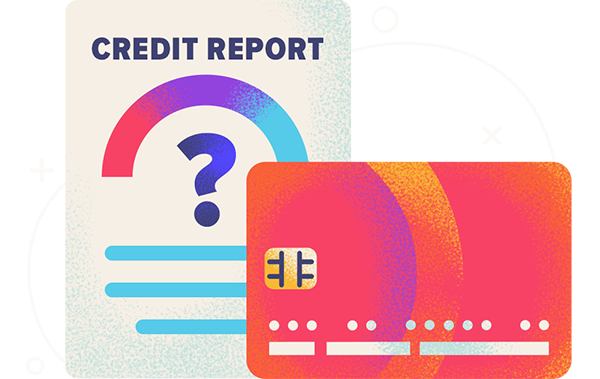To get a credit card with no credit, apply online for a starter credit card, a student credit card or a secured credit card, all of which are available to people with no credit history. As long as you are at least 18 years old, have a steady income and choose a card designed for newcomers, you should have good approval odds.
Key Things to Know
- Options: You can still get a credit card with no credit history, but your options are typically limited to secured cards, unsecured starter cards and student cards.
- Process: To get a credit card with no credit, you’ll need to compare offers, pick the one that best aligns with your financial needs, submit an application, and then wait 7-10 business days after approval for the card to be delivered.
- Importance: It’s important to get a credit card and start building credit history because your credit standing affects what future loans and lines of credit you can qualify for, as well as the interest rates and fees on those products. Building good credit can even help you rent an apartment or get a job.
5 Steps to Get a Credit Card with No Credit
- Can You Get a Credit Card With No Credit?
- 5 Steps to Get a Credit Card With No Credit
- Why Do Issuers Offer Credit Cards to People with No Credit History?
- No Credit vs. Bad Credit
- Types of Credit Cards for People With No Credit
- Best Credit Cards for No Credit
- How to Make the Most of Your New Credit Card
- Why Building Credit Is Important
- FAQ About Getting a Credit Card With No Credit
Can You Get a Credit Card With No Credit?
Yes, you can get a credit card with no credit. Everyone has to start building credit somewhere, so many banks and credit unions have cards specifically intended for people who have little or no credit history. These cards are easy to get, and they’ll consider non-credit-related factors such as your income and employment status during the approval process.
To get one of these cards, you’ll just have to follow a few simple steps.
5 Steps to Get a Credit Card With No Credit
- Confirm you have no credit
- See if your school email still works
- Compare starter credit cards
- Submit your application
- Activate your new credit card (or place a deposit on a secured card)
You could have a new card in your hands within 7-10 business days of applying. But let’s not get ahead of ourselves. Let’s go through the steps involved in getting a credit card for the first time with no credit history in greater detail. After that, we’ll explain why credit card companies offer cards to people with no experience, the types of cards you can get, and more.
Step 1: Confirm you have no credit
You might have a credit history without even realizing it. This could come from being an authorized user on a parent’s credit card account, or it could be some sort of a mistake that you’ll need to dispute before applying for a card.
Depending on the situation, having an existing credit history could either put you in line for a better starter credit card or make it harder to get approved. You can check your credit report and score for free here on WalletHub.
Step 2: See if your school email still works
College students typically get much better credit cards than other people with no credit. Student cards tend to offer lower APRs, lower fees and better rewards. So, if you have an active “.edu” email address, it will be an asset in your credit card search.
Step 3: Compare starter credit cards
You have to comparison shop if you want to find the best credit card deal. Your top priority should be getting a card with no annual fee whose other terms complement your spending and payment habits nicely. One reason we recommend a card with no annual fee is so you can focus on building credit at no cost. Plus, starter cards with annual fees typically don’t offer better terms than those without fees.
Step 4: Submit your application
Actually, applying for a credit card is the simplest part of the process. Just click “Apply Now” when you find your favorite offer, and we’ll redirect you to the issuer’s secure online application page. Applying online is the fastest application method. You could even be approved instantly.
Step 5: Activate your new credit card (or place a deposit on a secured card)
If you don’t get approved the first time you apply for a starter credit card, place a refundable deposit on a secured credit card. Secured cards have the highest approval odds because your deposit usually matches your spending limit.
Getting a credit card with no credit is fairly simple. But once you open a credit card account, make sure to use it responsibly. Above all else, that means paying your bill on time every month and keeping your credit utilization as low as possible. That will ensure your credit score starts strong and stays headed in the right direction. You can track your progress for free here on WalletHub.
Why Do Issuers Offer Credit Cards to People With No Credit History?
Credit card issuers offer credit cards to people with no credit history so untested borrowers can prove themselves before the stakes get high. Spending limits on these cards are low and rewards rates are modest, so banks and credit unions can make sure people are trustworthy before it comes time to talk about things like car loans and mortgages.
Offering credit cards to credit newcomers is also a good way for banks and credit unions to start a relationship that could be very fruitful in the future. Learn more.
No Credit vs. Bad Credit
It’s important to differentiate between having no credit and having bad or damaged credit because the implications of each status and the credit cards available to the types of consumers they describe are very different.
- People have no credit when they lack experience managing credit cards or loans in their own names.
- People have bad credit when they’ve made mistakes using their own credit cards or loans in the past. Rather than having to prove financial responsibility from a clean slate, people with bad credit must effectively prove that they won’t repeat financially irresponsible behavior.
In other words, the burden of proof is higher for the person with damaged credit, and the credit cards they must use to meet this threshold are less attractive than what is available to first-timers. Learn more.
Types of Credit Cards for People With No Credit
When looking for a starter credit card, your top priority should be to find an offer that does not charge an annual fee that you can get approved for. Four different types of cards may fit that bill, and we’ll break them down below, explaining the order in which you should consider them.
1. Secured Credit Cards. Repeatedly applying and getting declined for credit cards is bad for your credit. You should therefore take a realistic approach to getting your first credit card, and if you aren’t approved for the first card you try, take what amounts to the surest bet and place a deposit on a secured card so you can get the positive information flowing into your credit reports as soon as possible.
Your credit limit on a secured card is typically equal to your deposit. The issuer can keep your deposit if you default, but will return it to you in full if you close the card with a $0 balance.
2. Student Credit Cards. Student credit cards are unsecured cards geared toward students. They tend to offer more attractive interest rates, fees and rewards than similar non-student credit cards for people with no credit. That’s because students tend to have higher incomes after they graduate. This should be your first option if you are a student with no credit.
3. Unsecured Credit Cards for No Credit. If you are not a student, you still have options for an unsecured card. Unsecured credit cards for no credit don’t require a security deposit like secured cards do, and you will need a steady income to qualify.
4. Retail Store Credit Cards. Even though most store credit cards require fair credit at a minimum, there are some store cards for people with no credit. It’s important to mention that store cards can only be used at the retailers with which they’re affiliated.
No matter how you approach your search for a credit card with no credit, don’t turn the application process into the lottery. Many consumers use a lottery approach to getting their first credit card, submitting applications en masse, but this will hamper your credit building efforts more than it will help them.
Best Credit Cards for No Credit
Opinions and ratings are our own. This content is not provided, commissioned or endorsed by any issuer. WalletHub independently collected information for some of the cards on this page.
How to Make the Most of Your New Credit Card
Once you have your first credit card, your job is to use it responsibly until your credit improves enough to warrant approval for a better card. This usually takes about 18 months.
Responsible use entails making on-time payments every month, never approaching your spending limit, and refraining from carrying a balance from month to month. It does not, however, necessarily include actually using your credit card. You can build credit even with your card locked in a drawer or cut into a million pieces, after all.
If you need added incentive to use credit as responsibly as possible, just take a look at how much money a good credit score can save you each month. Learn more.
Why Building Credit Is Important
Although you can get a credit card without any credit, building a solid credit history is important because it will greatly expand your financial opportunities in the future. Your credit standing can have an impact on a wide variety of things, including:
- Approval for loans and lines of credit: The better your credit history is, the more likely you are to get approved for credit cards, student loans, car loans, mortgages, personal loans and many types of other financial products.
- Credit card benefits: Credit cards with high-tier rewards and benefits tend to require at least good or excellent credit for approval.
- Interest rates and fees: The APRs and fees on financial products are influenced by your credit history – the better your credit is, the lower they tend to be.
- How much you can borrow: If you don’t have a well-established credit history, creditors are unlikely to lend you much money since you don’t have a proven track record of paying back debt.
- Utilities: Utility providers may want to see your credit history to determine if you’re likely to make on-time payments. If you lack a good credit history, they may require an upfront deposit or a guarantee that someone else will pay your bills if you can’t.
- Insurance: People with a good financial track record are seen as more trustworthy, which can land you better insurance rates.
- Employment: Employers may check your credit history during the hiring process for some positions – and they’re more likely to hire people who are financially responsible.
You can check out WalletHub’s guide on How to Build Credit With a Credit Card for in-depth tips on starting your credit journey. If you join WalletHub for free, you can also get personalized advice on how to improve your credit.



WalletHub experts are widely quoted. Contact our media team to schedule an interview.